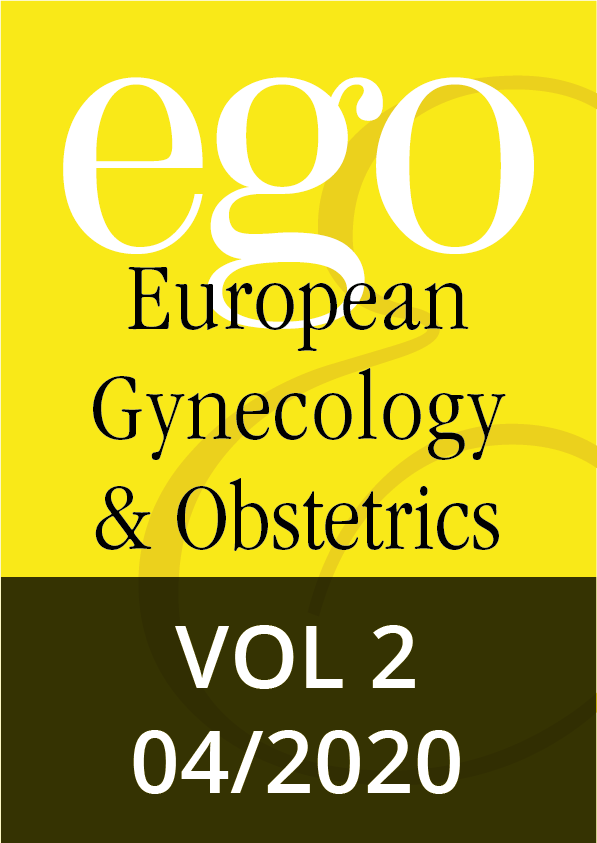Position paper, 198–204 | DOI: 10.53260/EGO.202041
Reviews, 205–209 | DOI: 10.53260/EGO.202042
Case reports, 210–213 | DOI: 10.53260/EGO.202043
Case reports, 214–217 | DOI: 10.53260/EGO.202044
Original articles, 218–222 | DOI: 10.53260/EGO.202045
Original articles, 223–233 | DOI: 10.53260/EGO.202046
Original articles, 234–238 | DOI: 10.53260/EGO.202047
Original articles, 239–245 | DOI: 10.53260/EGO.202048
Original articles, 246–248 | DOI: 10.53260/EGO.202049
Original articles, 249–254 | DOI: 10.53260/EGO.2020410
Original articles, 255–261 | DOI: 10.53260/EGO.2020411
Epidemiology of endometriosis in UK adolescents
Abstract
Background and Purpose: To estimate the incidence of clinically diagnosed and surgically confirmed endometriosis in UK adolescents (age 10-17) from 2006-2016.
Methods: This retrospective cohort study included adolescents enrolled in the Clinical Practice Research Datalink (CPRD GOLD) during the study period. Additionally, hospital episode statistics (HES) data were linked to CPRD GOLD for eligible patients and provided surgical confirmation of endometriosis. READ and International Classification of Disease (ICD-10)/ Office of Population Censuses and Surveys (OPCS) codes were used to identify cases of endometriosis in CPRD GOLD and HES, respectively. Cases of clinically diagnosed endometriosis were considered surgically confirmed if a procedure during which endometriosis could be visualized occurred within ± 1 year of the date that endometriosis codes were first entered in the patient’s medical record.
Results: The most commonly reported symptoms, recorded in adolescents’ medical records, in the sample of 15 to 17-year-old female adolescents were abdominal pain (3.7%) and dysmenorrhea (2.3%). The incidence per 100,000 women-years of clinically diagnosed endometriosis, in adolescents age 15-17 years was 13.65 (95% CI: 11.42-16.19), with more of the cases occurring (93%) at this range of age. The incidence of surgically confirmed endometriosis in adolescents age 15-17 years was 8.09 (95% CI: 5.86-10.90), with 98% of cases occurring in the older age group 15-17 years of age.
Conclusions: Endometriosis was infrequently diagnosed in this population-based sample of adolescents age 10-17 years in the UK and diagnosis mostly occurred in those 15-17 years or older. In accordance with clinical guidelines, there was limited surgical confirmation of endometriosis in this adolescent population. Increased diagnosis of suspected endometriosis in adolescents can lead to treatment and potentially better outcomes for young women experiencing this disease.
Keywords: diagnosis, endometriosis, epidemiology, incidence.
Citation: R. Di Bello J.,He J.,Weaver J.,Liu S.,Arbelaez Casas F., Epidemiology of endometriosis in UK adolescents, EGO European Gynecology and Obstetrics (2020); 2020/04:218–222 doi: 10.53260/EGO.202045
Published: October 1, 2020
ISSUE 2020/04

Position paper, 198–204 | DOI: 10.53260/EGO.202041
Reviews, 205–209 | DOI: 10.53260/EGO.202042
Case reports, 210–213 | DOI: 10.53260/EGO.202043
Case reports, 214–217 | DOI: 10.53260/EGO.202044
Original articles, 218–222 | DOI: 10.53260/EGO.202045
Original articles, 223–233 | DOI: 10.53260/EGO.202046
Original articles, 234–238 | DOI: 10.53260/EGO.202047
Original articles, 239–245 | DOI: 10.53260/EGO.202048
Original articles, 246–248 | DOI: 10.53260/EGO.202049
Original articles, 249–254 | DOI: 10.53260/EGO.2020410
Original articles, 255–261 | DOI: 10.53260/EGO.2020411
